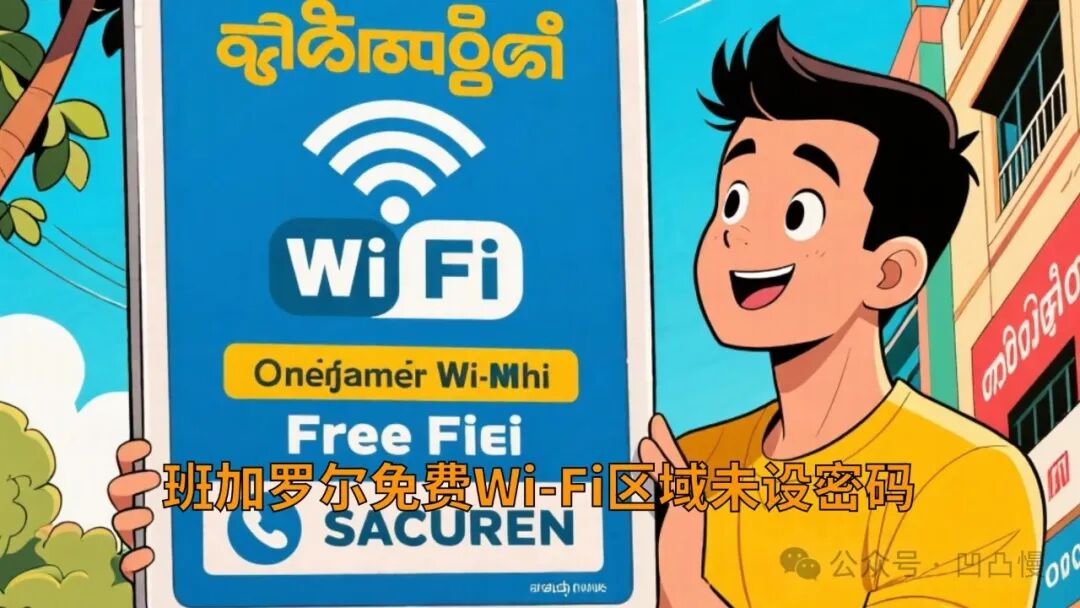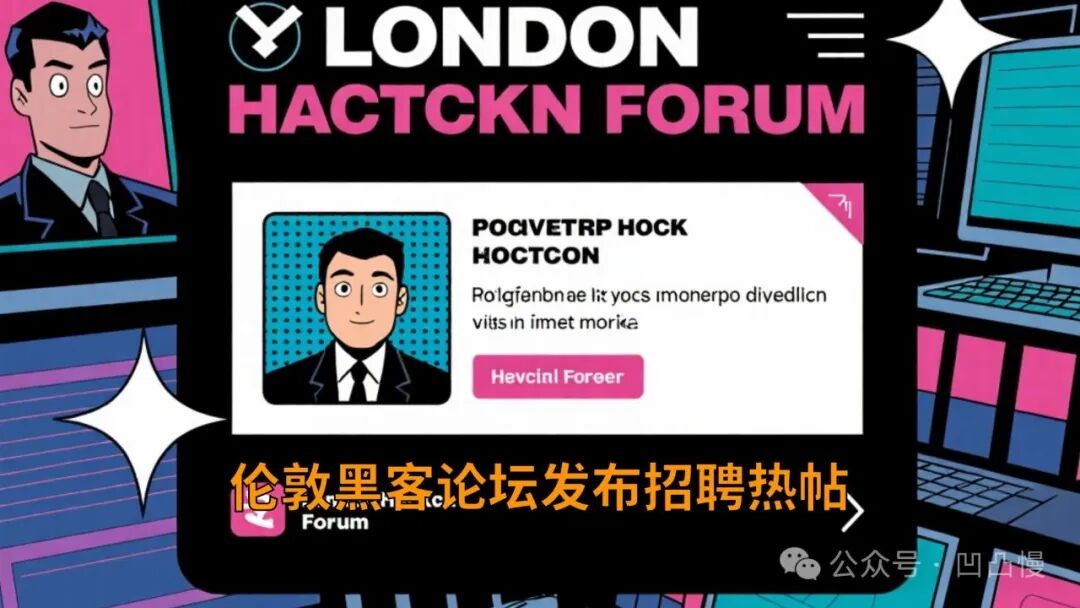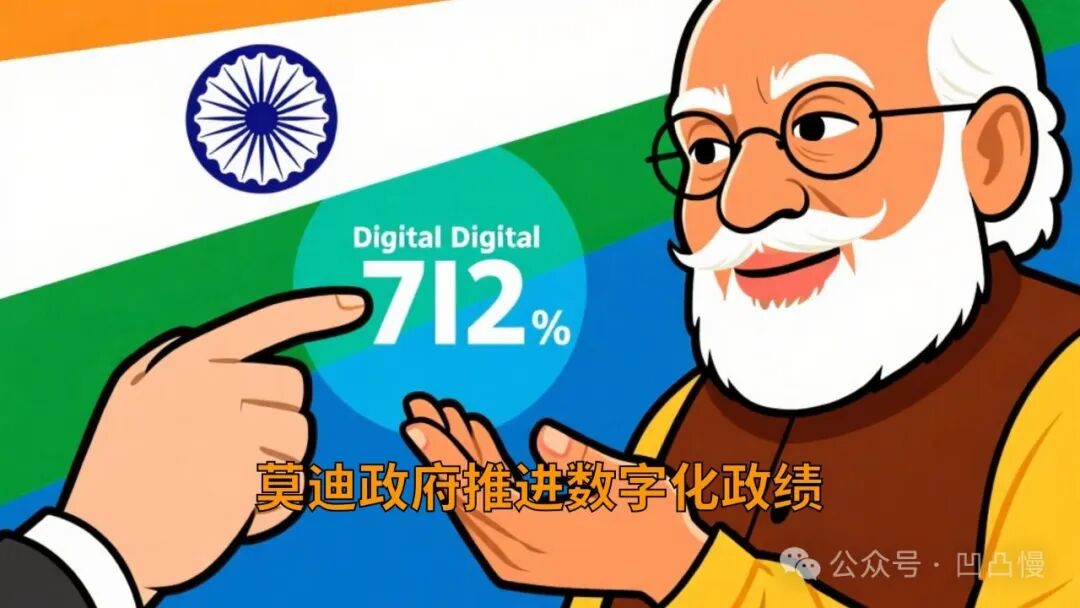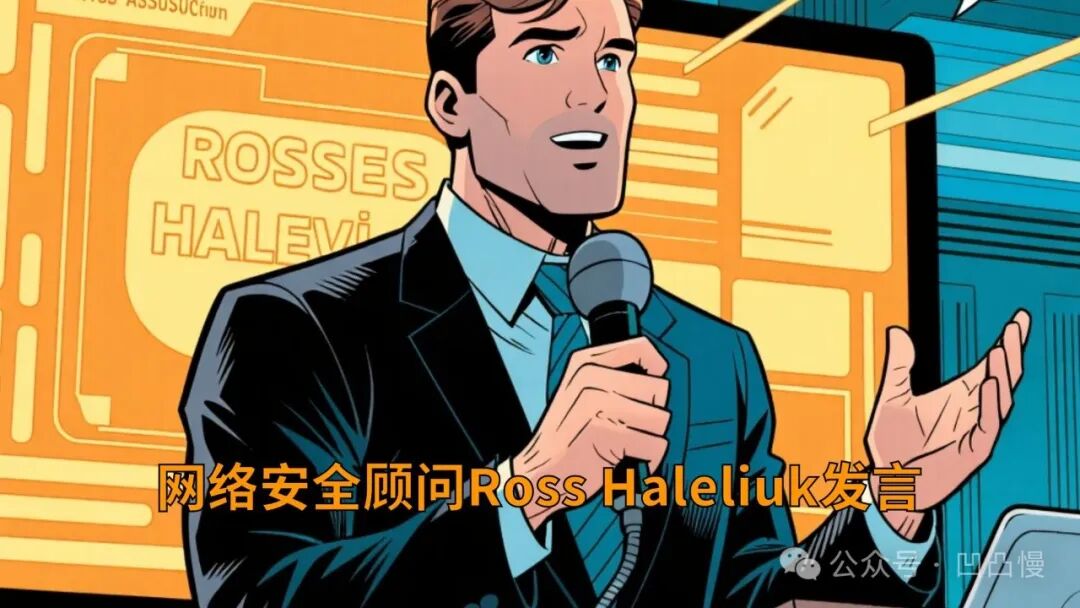In 2024, the Indian government launched the “PM-Wani” public Wi-Fi program, aiming to deploy 10 million hotspots nationwide to promote digital inclusion. However, as the 3,000 free Wi-Fi zones in the pilot city of Bangalore went live, it was revealed that they had not set a password, leading to unprotected network data! Security experts found that users’ private information, bank accounts, and even government server logs were fully exposed. Ironically, India had just been called out by international organizations for “excessive surveillance” due to privacy controversies in the Telecommunications Act, and now it has become a global laughingstock due to this blunder.

Foreign netizens’ spicy comments: India’s Wi-Fi, the world’s carnival
1. Indian netizens: Self-deprecating, angrily exposing bureaucratism
@Mumbai programmer Raj: “We can generate electricity from cow dung, but setting a password for Wi-Fi is too hard? I suggest Modi first educate officials that ‘123456’ is not a secure password!”
@Delhi housewife Priya: “Free Wi-Fi? I can barely get a 4G signal! Hackers stealing data? We’ve long been used to the government ‘stealing’ from us…”
2. South Korean netizens: Overflowing sense of technological superiority, full of mockery
Seoul IT blogger Kim: “India wants to learn our 5G full coverage? First, learn how to set up a firewall! I suggest Samsung give them a free tutorial on ‘How to Set a Password.'”
Busan gamer Lee: “I heard Indian Wi-Fi can mine for free? Brothers, let’s team up to take advantage! But be careful not to catch the curry-flavored virus…”

3. African netizens: Eating popcorn while worrying
Kenyan businessman Juma: “Is India this careless when fixing our fiber optics? Better check my bank account!”
Nigerian student Amina: “Thanks, India! Finally, I can use the internet to submit my assignments… but what if my paper gets plagiarized by hackers?”
4. European and American netizens: Meme frenzy, conspiracy theories take off
Silicon Valley engineer John: “Is India using free Wi-Fi to collect global data? No wonder it’s a new tactic of ‘digital colonialism!'”
London hacker forum hot post: “The Indian government is recruiting white hats, benefits: unlimited crispy snacks + Ganges Wi-Fi experience vouchers!”

Expert analysis: The “magical gap” between ambition and reality
Technical aspect: India’s public Wi-Fi uses the outdated WPA2 protocol, which is vulnerable to KRACK attacks, and the lack of training for maintenance personnel renders security measures ineffective.
Policy aspect: The Modi government is eager to promote digital achievements but neglects the execution capabilities at the grassroots level, leading to the awkward situation of “high-level design looking grand, but implementation ends up being a box.”
International impact: This incident severely damages India’s image as a “digital superpower” and may affect its cooperation with the US and Japan on 5G and quantum technology projects.

Lessons and reflections: Free is not a panacea; security is the hard truth
This “Wi-Fi blunder” in India exposes a common problem in developing countries regarding digital infrastructure—prioritizing scale over security and speed over management. As cybersecurity consultant Ross Haleliuk stated: “India’s technological potential should not be underestimated, but if they can’t even get basic passwords right, how can they lead globally?” Netizens jokingly suggested: “Next time, India should standardize the Wi-Fi password to ‘Jai Hind’ (Long Live India), at least hackers would have to learn Hindi first!”

Statement: This article is based on a thorough review of relevant materials and news sources, forming a professional and reliable content, with all data verifiable and traceable.
The content of this article does not involve any biased viewpoints and is written with a neutral attitude and objective facts.